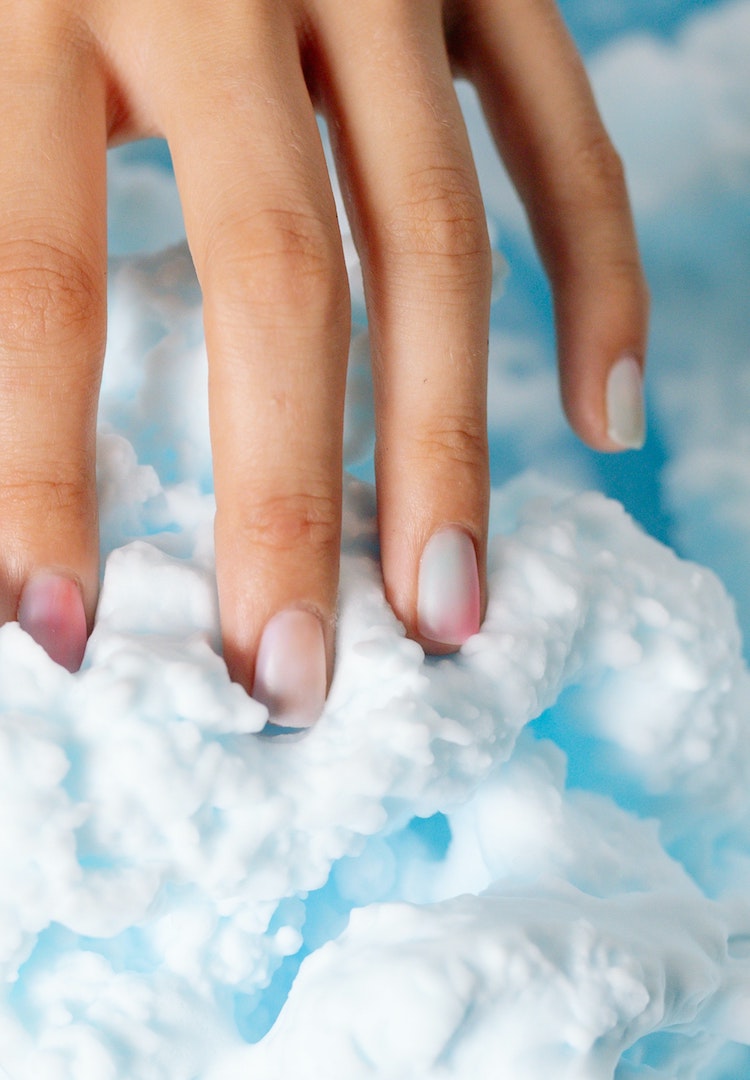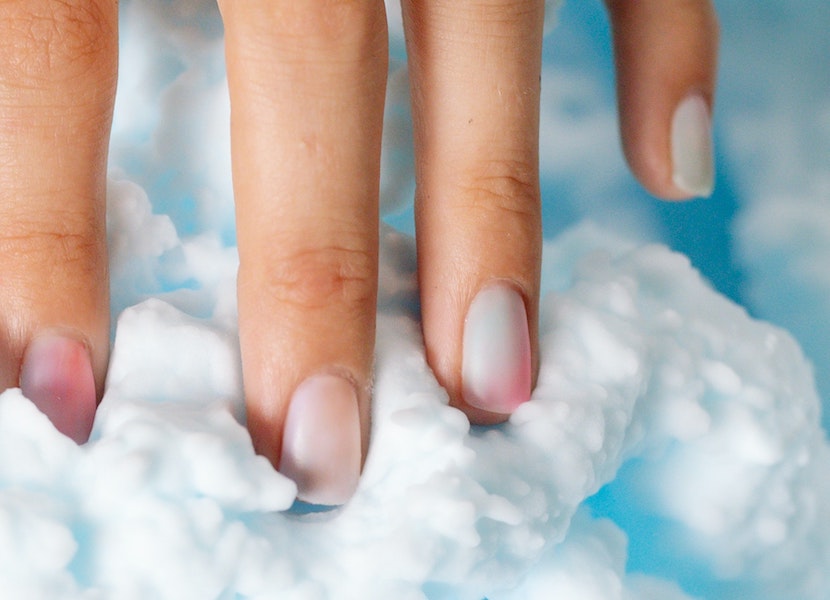What is mindful masturbation and how can I practise it?
WORDS BY ALICE CHILD
Reap the many, many benefits.
Sydney-based somatic sexologist and sex and intimacy coach Alice Child is the founder of Vulva Dialogues. She works with individuals, couples and groups, helping people achieve happier, healthier and more fulfilled sex lives – whatever that means for them. Visit her website for more.
We live in a time where many of us are caught in our own heads, instead of listening to our bodies. There’s an inherent disconnect between what the body is experiencing and our ability to feel it, which is why so many of us struggle to stay ‘in the moment’ during sex.
We might find sex ‘boring’ or ‘predictable’, or struggle with issues like reduced sensation, difficulty orgasming, difficulty forming an erection or mental distractions. We might worry about how we’re performing, what we look like, what our partner is thinking, or whether or not we’ll be able to orgasm (or even build any arousal at all). We might find our thoughts wandering, thinking about something else entirely.
For more content like this, tap through to our Life section.
As a somatic sexologist, I help people get out of their heads and back into their bodies. This helps them get access to more sensation, pleasure, desire and arousal. One of the ways I do that is through teaching mindful masturbation.
What is mindful masturbation?
‘Mindfulness’ is all about where we place our awareness. If we do a meditation, we are consciously trying to notice our distractions or inner thoughts, and learn techniques to quiet our mind, reduce anxiety, sleep more easily and be more present. The more we practise meditation, the more natural and easy it becomes.
Mindful masturbation is also all about where we place our awareness and repeated practice. It’s a type of self-pleasure where a person mindfully and deliberately pays attention to what they are feeling physically within their bodies, instead of focussing on their inner thoughts, fantasies or distractions. Instead of using masturbation as a form of ‘quick release’, mindful masturbation is all about curiosity, embodiment and learning new ways to build pleasure within your body.
Ultimately, mindful masturbation is about removing orgasm as the end goal, and instead placing curiosity, pleasure, and self-discovery as its objective.
What is the science behind mindful masturbation?
Most of us learn fairly early in life what our body needs to build pleasure, arousal and reach orgasm. Through trial and error, we find out what works best for us then tend to stick to it. Over time, habits form. We might start to masturbate in the exact same way every single time, using the same type of touch, toy, porn, fantasy or position, or hold our breath or muscles in a certain way each time.
These sexual habits form pathways in our nervous system that become more and more embedded. This is what is known as ‘myelination’.
Myelination allows more rapid transmission of neural information along neural fibres. When it comes to sex, this means we can build pleasure and orgasm more quickly and more easily when we use our tried and tested sexual habits.
This all sounds great, so what’s the problem? Well, although these pathways can be useful, over time we may fall into sexual ruts, and not feel as much pleasure as we used to. People might start experiencing sexual boredom, reduced sensation, less powerful orgasms, difficulty building arousal, and many other sexual concerns.
They also might find it increasingly difficult to build pleasure and arousal in other contexts – such as with a partner, or in different sexual positions. For example, they might believe they simply ‘can’t’ reach orgasm without porn or ‘can’t’ build arousal with a partner, when the reality is they have never taught their body how to.
Mindful masturbation is all about learning and discovering new neural pathways that give you and your body pleasure. The ability to form new neural networks in the brain and nervous system is what is known ‘neuroplasticity’.
What are its benefits?
There are many benefits of masturbating or self-pleasuring more mindfully. It helps strengthen the mind-body connection, form new neural pathways, and as a result leads to numerous sexual, mental, and physical health benefits.
A host of sexual health benefits
As far as sexual health benefits, we might notice increased pleasure, orgasmicity and sensation. When we masturbate mindfully, we are teaching ourselves new pleasure pathways. Practising regularly can therefore lead to increased libido, stronger and more reliable orgasms, and increased arousal and desire. By removing the goal of orgasm, we are also removing the pressure many people feel during sex and self-pleasure.
Learn new forms of sexual pleasure and erogenous zones
Through practice and curiosity, we can also learn new forms of sexual pleasure we didn’t know we were capable of. Multiple orgasms, whole-body orgasms, breath-orgasms, squirting, prostrate orgasms, and much much more can result. We might also discover incredible new erogenous zones on our body that were previously ignored, such as our ears, hips, inner thighs, ribcage, neck, or the back of our knees.
Less reliance on porn and fantasy
Many people rely on their brain to turn them on, through internal fantasies, porn or other erotica. Although these are useful erotic tools, if we become over-reliant on them we risk losing the ability to rely on the sensations in our bodies to build our arousal.
As a result, we may feel ‘desensitised’, and find it hard to stay present with the sensations or connection we are experiencing in the present moment, without the addition of porn or fantasy. Mindful masturbation helps us reconnect with our body.
Less reliance on vibrators and toys
Vibrators are amazing at giving people new sensations and ways to build pleasure and arousal in the body. Although there is no evidence that vibrators ‘desensitise’ the nerve endings in our body, if you use your favourite vibrator every single time you want to build arousal, your body might become reliant on one very specific type of sensation. Over time, you might not be able to reach the same level of pleasure without it.
Overcoming sexual concerns
Many very common sexual concerns can be improved through mindful masturbation. Erectile difficulty, premature ejaculation, difficulty orgasming, painful sex, and low libido or desire are all very common sexual concerns that can benefit from self-pleasuring more mindfully and with more variation and curiosity.
Similarly, if you struggle with staying present, mindful masturbation can help you quieten your mind and stay more present and in the moment. With practice, you’ll become less distracted during sex and intimacy.
Mental health benefits
Our mental, physical and sexual health are all interlinked. When we are having better sex (with others and ourselves), we become healthier, happier, and more connected. The mental health benefits of sex and pleasure can include reduced feelings of depression, anxiety and stress; improved self-esteem; increased feelings of intimacy and connection to those around us; and as a result, stronger relationships.
Physical health benefits
Sex and masturbation are also very beneficial to our physical health. Sexual pleasure activates a variety of neurotransmitters, hormones and chemicals that impact not only our brains, but many other organs in our bodies. With regular self-pleasure, you might notice you have lower blood pressure, a stronger immune system, less pain, improved gut health and better sleep overall.
How can I try mindful masturbation at home?
The first and most important thing is removing the goal of orgasm. Instead, set the intention of curiosity and pleasure before any mindful masturbation or self-pleasure practice. Try and enjoy the journey, not the destination! Manym many mindful self-pleasure sessions do not end in orgasm.
Carve out daily time
Just like you have to set aside time for your daily workout, you have to do the same for your sexual wellness and pleasure. Try and schedule time every day for some kind of mindful self-pleasure – even if it’s just a hot, steamy shower, a self-massage or feeling the sun on your face. The more we prioritise and enjoy pleasure, the more long-term benefits we will feel.
Set the scene
Think of all the things that make you feel sexier, more present, and more connected to your pleasure, and bring them into your space. Whether that’s candles, incense, fresh bedding or a certain playlist, create a space and a mindset that makes you feel safe, sexy and connected to your pleasure.
Then do the opposite and identify what makes you feel distracted or disconnected during sex. Do what you can to reduce these factors in your space. For example, you might turn off your phone or lock the door.
Placement of awareness
Notice where your mind is focused. If you find your mind wandering, gently and without judgment bring your awareness back to your body. What are you noticing? What might make it feel even better?
Change up your touch
The next thing to remember is variation. If you notice yourself falling into sexual habits during masturbation and self-touch, try new strokes, speeds, pressure, body positions, toys, incorporate a lube or massage oil, and try new places on your body. Don’t go straight to genital touch. Instead, explore other erogenous zones first and see what you discover.
Use your breath
Breath is one of the most powerful tools we have in regulating arousal and pleasure in the body. If you notice yourself holding your breath, or taking small, shallow breaths, try deepening and lengthening your breath, and see how this changes what you are noticing in your body.
Add some movement
If one of your sexual habits is staying in still positions (such as lying or sitting down), try and incorporate some movement or new positions to your practices. Gentle tilts of the pelvis in time with your breath, clenching and releasing your pelvic floor muscles, and shaking your entire body are all good things to try as you build arousal. You could also try new positions such as standing up, kneeling upright, or kneeling on hands and knees.
Make some noise
Many of us learn to masturbate quietly as a way to keep what we’re doing private from unsuspecting family members or housemates. Intentionally or not, staying silent limits our capacity to really relax and enjoy different sensations. It can also reinforce sexual shame. Practise making different noises during your self-pleasure, and see how that changes what you experience. You might sigh, moan, roar, laugh, hum or scream, whatever feels good for you.
Finish with stillness
Take one to two minutes at the end of every session just to relax and be still. What did you learn? What are you noticing in your body? What might you be curious to try next time? Ultimately, make sure you enjoy yourself, and never forget the lube!
For more on mindful masturbation, try this.










